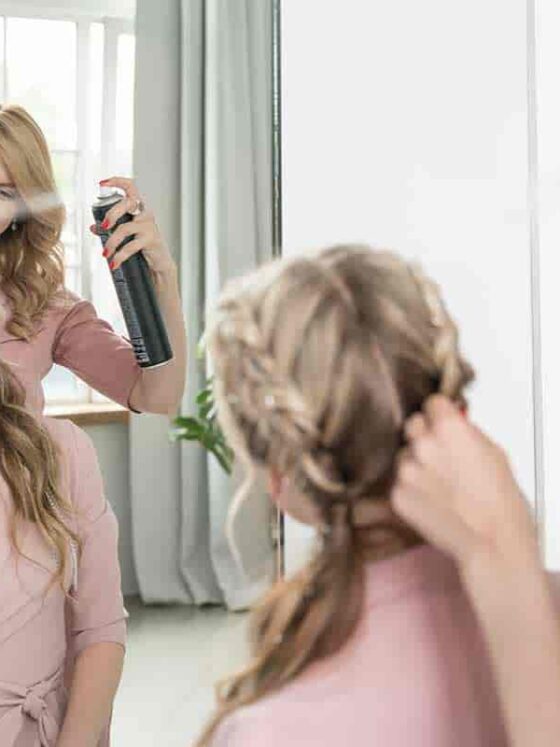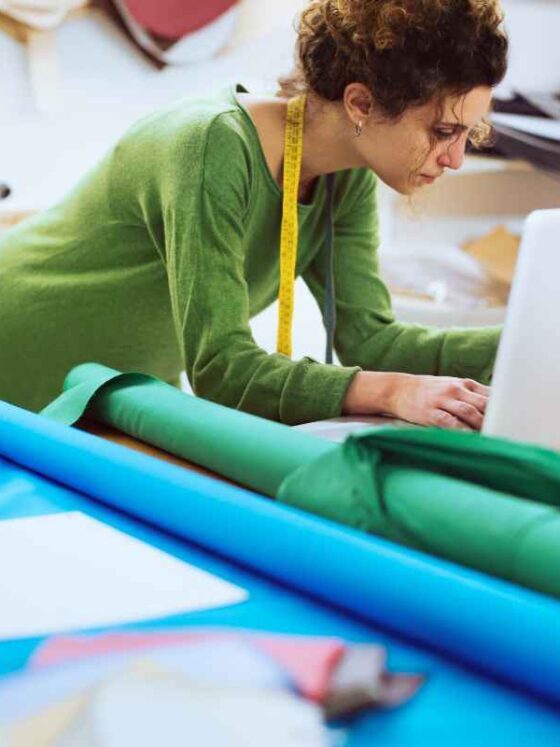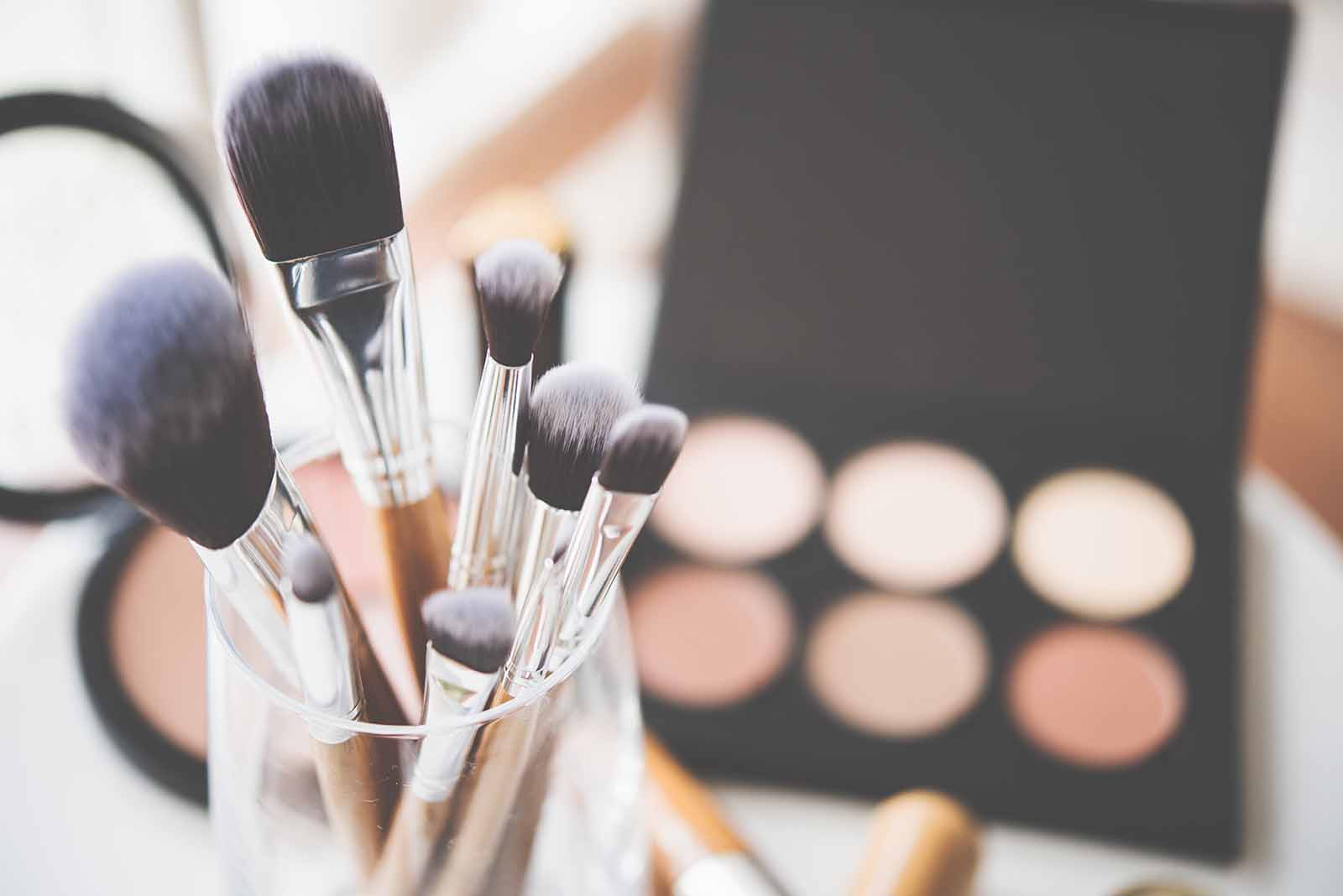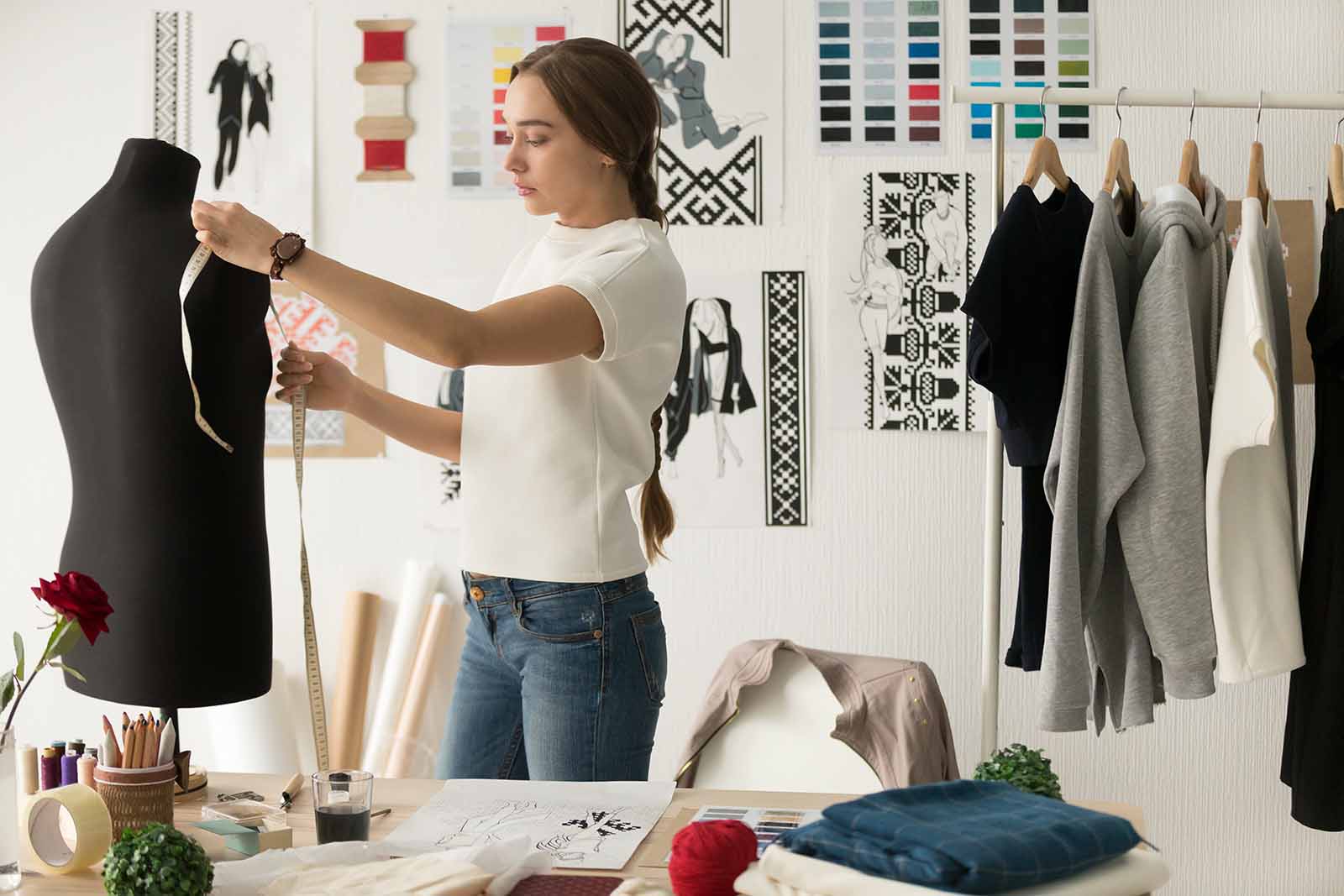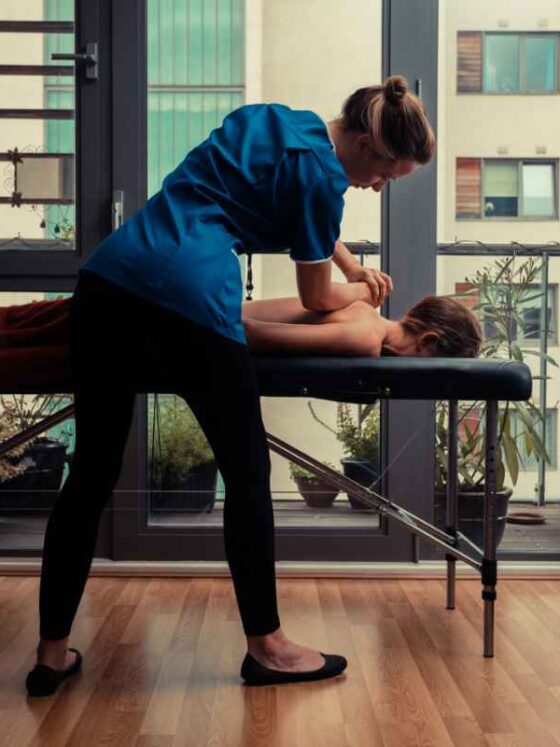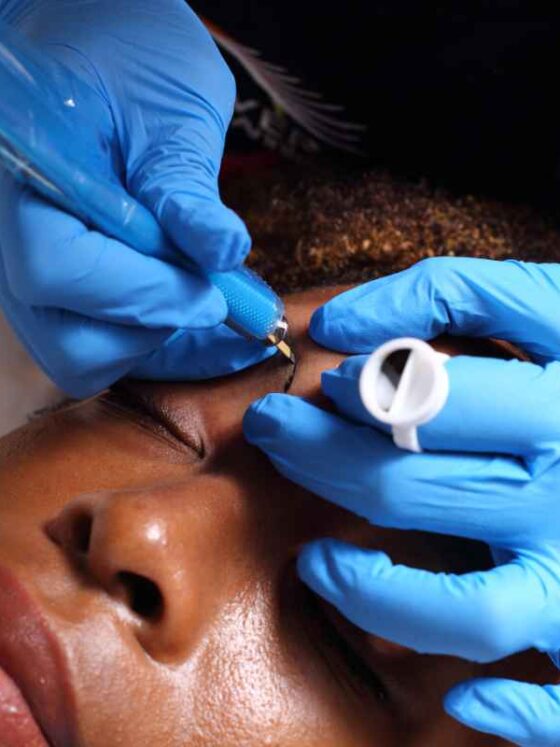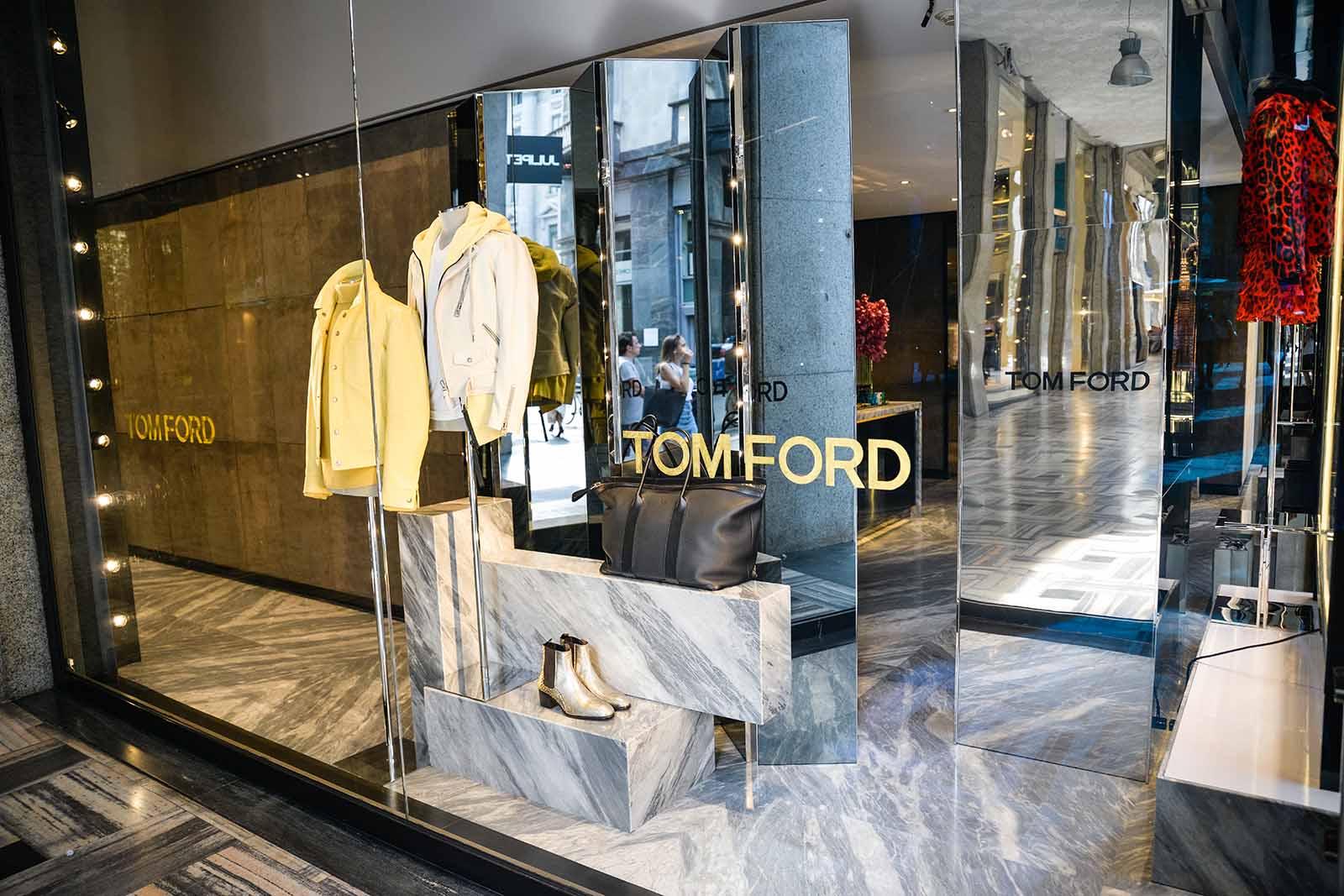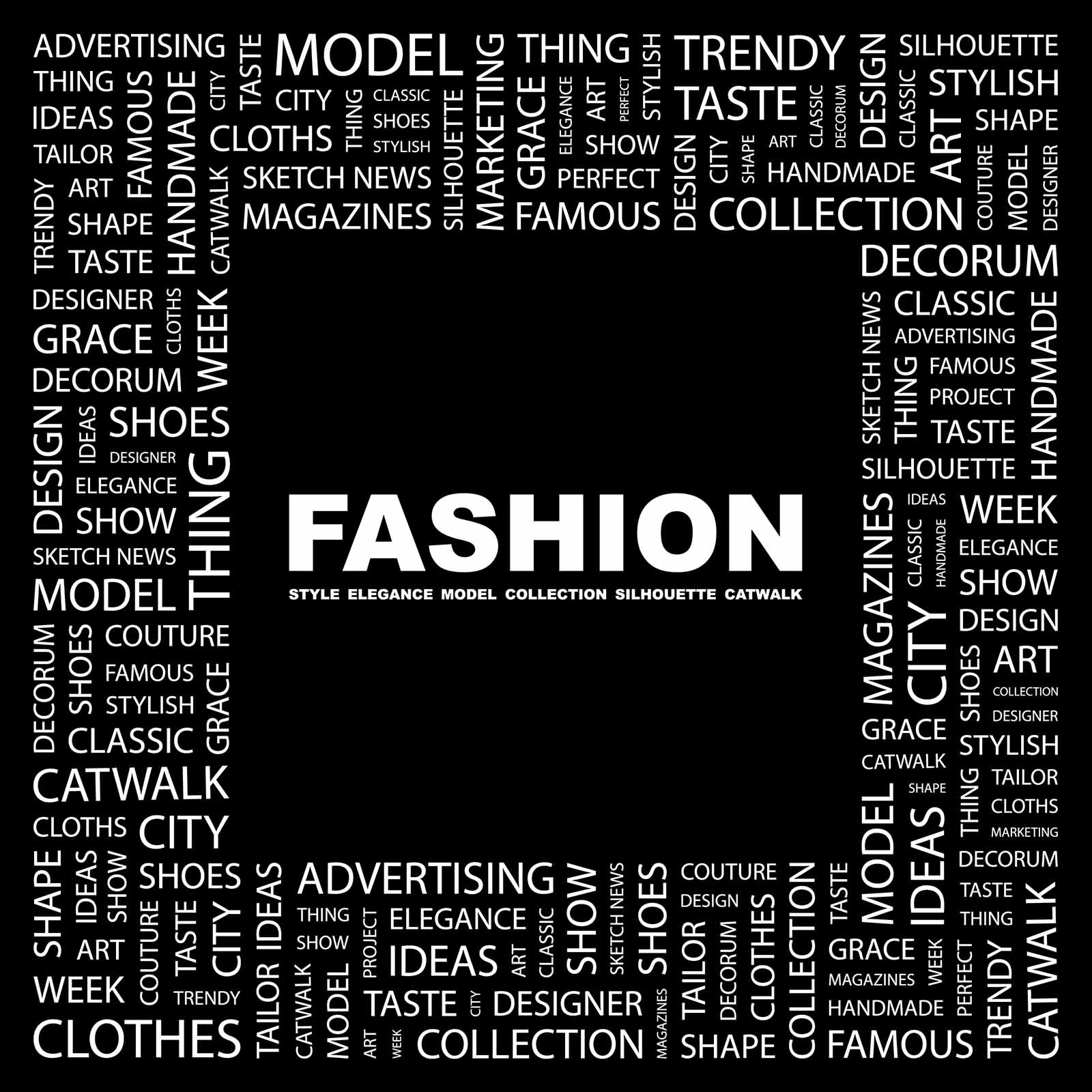7 Different Fashion Design Jobs

Are you fascinated by the world of fashion and see yourself working in a fashion design job? There are many job opportunities for those who are interested in fashion design, and some positions you may not readily think of when considering fashion design. So, what all can you do in fashion design?
7 Different Fashion Design Jobs:
- Fashion Designer
- Fashion Psychologist
- Personal Stylist
- Costume Designer
- Fashion Merchandise Buyer
- Fashion Marketing/PR
- Fashion Journalist Or Blogger
Just because you have a degree in fashion design, it doesn’t mean the only job available to you is as a fashion designer. The world of fashion is filled with opportunities, and a degree in fashion design is a great step towards turning a love of art and fashion into a rewarding career.
New jobs are being created in the fashion world every day. With the advent of technology, fashion is more accessible than ever and many traditional fashion careers are being modified while completely new roles are being born. For example, fifty years ago, the idea of a fashion psychologist would have probably been laughed at, but today it is a legitimate role in high demand at top fashion companies.
If you have a fashion design degree or are considering obtaining a degree, it can be helpful to know what jobs are available on the market. For a quick rundown of some available options, as well as general advice for those seeking a fashion design degree or looking for a career change, read on below.
What Jobs Are In Fashion Design?
Fashion design covers a multitude of jobs, including those directly dealing with the conception and construction of clothing, and those that are related to clothing design but are not necessarily involved with the direct production of attire. Not only are there various types of jobs but if you want to dig into fashion design further as well you can learn more about the many types of fashion design itself!
Many fashion designers may be employed by wholesalers or particular brands and have a steady in-house position in a company. Other fashion designers may choose to be self-employed, working on a custom basis. Self-employed fashion designers tend to be specifically involved in haute couture and high-end fashion.
Some fashion designers may be responsible for creating and producing clothing, while others may specialize in footwear, accessories, or costumes.
7 Different Fashion Design Jobs
 1. Fashion Designer
1. Fashion Designer
First and foremost, perhaps the most obvious fashion design job is as a fashion designer. This role can occasionally go by different names, including apparel designer, fashionista, and clothing designer.
Fashion designers generally start with a sketch of their clothing design, creating the sketch either by hand or by computer-aided design software. At this stage, a fashion designer will begin to explore fabric options, paying particular attention to how colors, shapes, and patterns will look on a live model. If this is something that interest you, you can learn pattern making online.
Fashion designers can either be employed by a company or work in freelance design. For those interested in trying to be self-employed, internet retail shops now offer a great opportunity to allow your designs to be available nationwide.
Fashion designers often have a strong creative energy and an attention to detail. You can take a look at our article listing some of the best fashion designers in the world to have an idea on what fashion design is all about. If you are interested in taking your passion for fashion to the next level and making it into a career, a degree in fashion design may be the right choice for you.
2. Fashion Psychologist
When you hear the term psychologist, you might think of a bespectacled old man with a clipboard listening to someone lying on a couch and talking about dreams. But psychology actually holds an important role in the fashion world, and many innovative fashion designers are finding niche positions for themselves as “fashion psychologists.”
What does a fashion psychologist do? Essentially, these creative individuals apply psychological theories to the clothing that we wear, determining how clothing can influence our perception of others and impact how we feel emotionally. By analyzing consumer behavior and thought, fashion psychologists can help predict what certain clients will buy and help develop marketing strategies and design apparel based on these trends.
If you understand the mental, emotional level that attracts people to clothing, it can significantly influence the type of clothing you design and help reach a target clientele.
In order to be a fashion psychologist, you would benefit not only from studying fashion but also taking courses in psychology, anthropology, sociology, and neuroscience. Fashion psychologists may take on a more consulting role rather than strictly fashion design, but the niche career offers a unique opportunity for motivated individuals.
3. Personal Stylist
It may seem like personal stylists only cater to the rich and famous, but actually online shopping has changed this trend. The internet has become saturated with personal styling services, such as Thread, Stichfix, and Nordstrom’s Trunk Club, just to name a few. Many of these online retailers offer a subscription-based service so consumers can find themselves supplied with new clothing items on a regular basis.
These services operate so that clients are paired with a personal stylist, who uses general information about the client’s likes and dislikes to curate a wardrobe. While this may not seem directly related to fashion design, personal stylists often have to have a keen eye for detail, be able to identify fashionable trends, and match pieces to a client’s tastes.
Personal stylists at higher-level positions may actually be responsible for determining what elements of fashion design will be passed on to elite clients, thus helping establish or solidify fashion trends. While a stylist tends to do more curating of pieces rather than designing from scratch, a professional usually has a solid knowledge base of fashion design in order to be successful.
Those who are pursuing a career as a personal stylist usually have a desire to help people and are motivated to promote his or her own enthusiasm for fashion on to clients. Personal stylists usually have impeccable taste, which sometimes is a difficult quality to come by.
4. Costume Designer
One fun potential career for fashion designers is to become a costume designer. Costume designers are responsible for creating all the fabulous outfits you see in movies, television, or theatre productions.
Costume designers usually first read the script of the production in order to get a general idea of the setting, of the characters’ personalities, and the time period. Costume designers will often have to take into account whether characters will need quick outfit changes, such as for live performances. In addition, many costume designers may need to have a good knowledge of historical fashion trends in order to design clothing suitable for period pieces.
Costume designers will usually have to have their designs approved by a director and/or producer before creating the apparel, often working with a specific budget and a set time frame. This role usually requires knowledge for drafting patterns and familiarity with sewing so as to be able to communicate detailed costume nuances to the tailors and dressmakers responsible for producing the garment.
This can be an exciting opportunity for some fashion designers and is a great fit for anyone who is creative, attentive to detail, able to take constructive criticism, and able to work well under deadlines. This role also works well for any fashion designers who are able to adequately determine how clothing can communicate non-verbal details such as age, social status, time period, and employment.
5. Fashion Merchandise Buyer
If getting paid to shop sounds like a dream, then a career as a fashion merchandise buyer may be perfect for you. Of course, being a fashion merchandise buyer is a little more complicated than just shopping for fun, but it is still an entertaining and creative way to use a degree in fashion design.
Fashion merchandise buyers essentially decide what items will be stocked in stores. Because of this, it is important to be up to date with the latest fashion trends, as well as understand how consumers tend to purchase, what markets are on the rise, and what brands are hot at the moment. Often, the job will require predicting what is going to be the next big thing in fashion and make sure stores are stocked for when the trend hits.
If you find yourself enjoying figuring out what sort of fashion people like and dislike, this might be a great position for you. Often, fashion merchandise buyers begin their careers in internships or as assistant buyers. It may take some time to work up to being a senior buyer.
6. Fashion Marketing/PR
If you have a knack for handling social relations, working in a fashion PR role might be the perfect fit for you. For someone in fashion marketing and PR, the entire image of a fashion house or label will be your responsibility, and so you need to be knowledgeable about how to adapt to appeal to market trends.
This role can be fairly challenging, but it can also be very rewarding. Those in fashion PR are responsible for promoting upcoming events, such as runway shows or a new seasonal wardrobe release. In addition, fashion marketing specialists often develop and launch advertising campaigns for fashion labels or companies.
In order to excel in a fashion PR job, you should be comfortable analyzing market trends and helping represent a fashion line in the best possible light. In addition to a fashion design degree, those seeking a career in fashion PR often consider obtaining a degree in marketing.
7. Fashion Journalist or Blogger
For many who study fashion design, fashion is not just a career but a way of life. The passion for fashion may mean that you are constantly scouring the pages of fashion magazines, both online and in print, for the latest fashion news. Those articles that give you insight into the fashion world are written by journalists and bloggers who specialize in fashion, and it’s a career opportunity for anyone interested in fashion design.
If you are a skilled writer as well as enthusiastic about fashion, you may flourish as a fashion journalist. Many writers start out by blogging because it is relatively easy to set up your own blog and start gaining experience writing about fashion.
The most talented fashion writers can move up the ranks and eventually be the editor in chief for an entire magazine. Being a fashion writer is a great way to apply communication skills to a passion for fashion and help influence the public’s opinion of current fashion trends.
How Do I Get A Fashion Design Job?
Fashion design jobs generally require some form of degree or certification beyond high school. Most fashion designers will have at least a bachelor’s degree in a field such as fashion design or fashion merchandising.
Employers for fashion designers look not only for a solid educational background, but also for evidence of creativity and knowledge of how clothing is produced from start to finish. Often, it can be helpful to have a portfolio of your work in order to give potential employers a glimpse into your style and expertise.
Fashion designers often also pursue paths that allow them to gain experience in the industry, such as through internships or working as an assistant for a period of time. It can also be a helpful skill to know how to properly network, as this can be useful in the fashion industry to make the connections necessary to reach your particular career aspiration.
Is There A Demand For Fashion Designers?
For fashion designers, the job outlook has been fairly positive over the past few years, with a predicted growth rate of nearly 7 percent. The demand for fashion designers in the United States is concentrated primarily in New York and California, although there is a growing demand from international fashion houses.
Since retailers are paying more attention to style trends and wanting to offer more fashionable attire, there is predicted to be an increased demand for fashion designers in order to create mass-marketed clothes for the public.
What Kind Of Education Do You Need For A Fashion Designer?
As mentioned previously, most fashion designers have at least a bachelor’s degree in fashion design or fashion merchandising, although occasionally some designers are able to obtain entry level positions after completing an internship or working as an assistant to a fashion designer.
If you are considering working towards your degree in fashion design and start your career in the exciting, fast-paced world of fashion, you may want to consider an online fashion design course. Online fashion courses offer the unique ability to earn your degree from the comfort of your own home, and on a timeframe that suits your availability.
Final Thoughts
In summary, fashion design is a broad career with many potential opportunities that can be tailored to best suit your skillset. The list noted above is only a small portion of possible careers using a fashion degree, so earning your degree can open up doors to a multitude of different jobs.
If you want to get started in a career in fashion design, it is advisable to pursue a degree in either fashion design or fashion marketing. If attending a traditional four-year bachelor’s degree program is not an appealing option, there are a number of great online fashion design courses available to you.
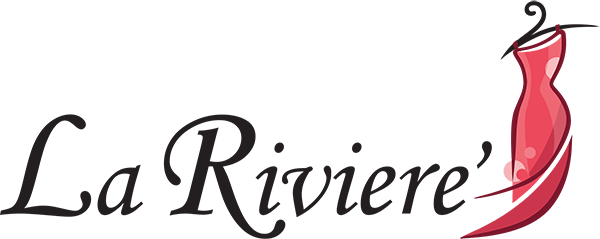
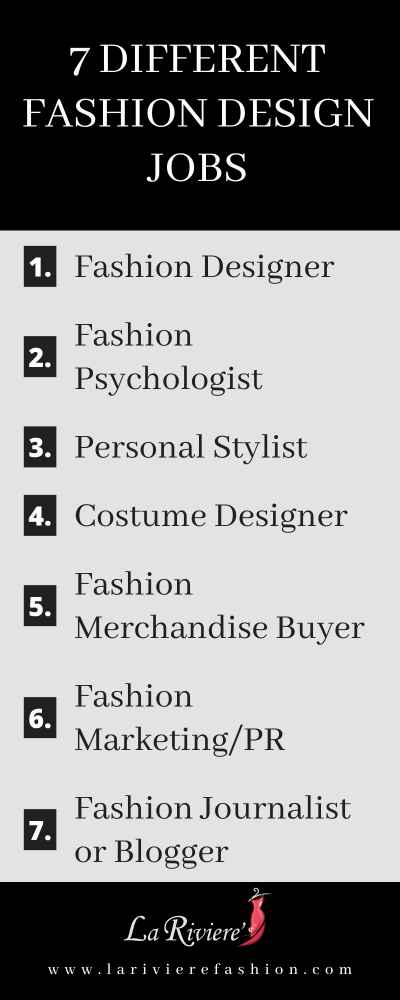 1. Fashion Designer
1. Fashion Designer